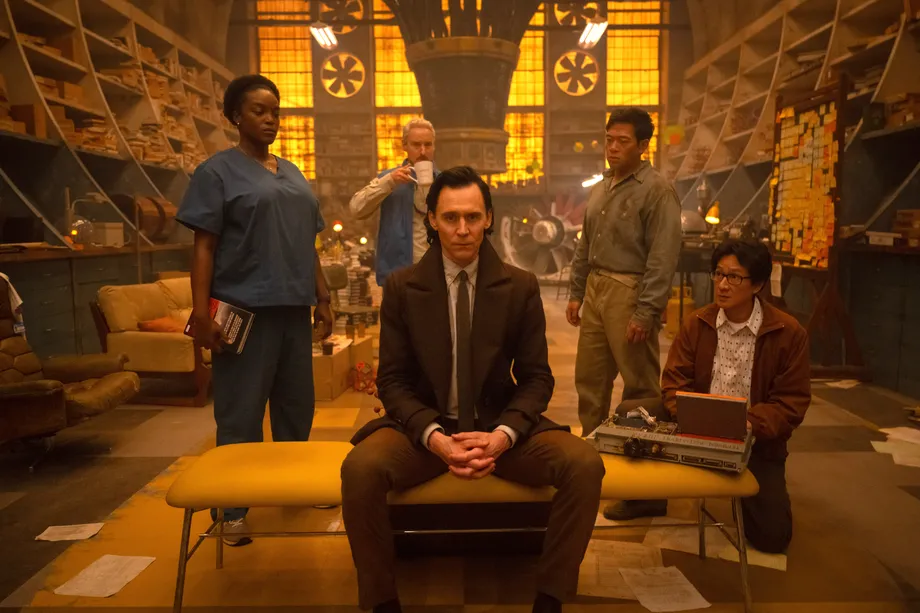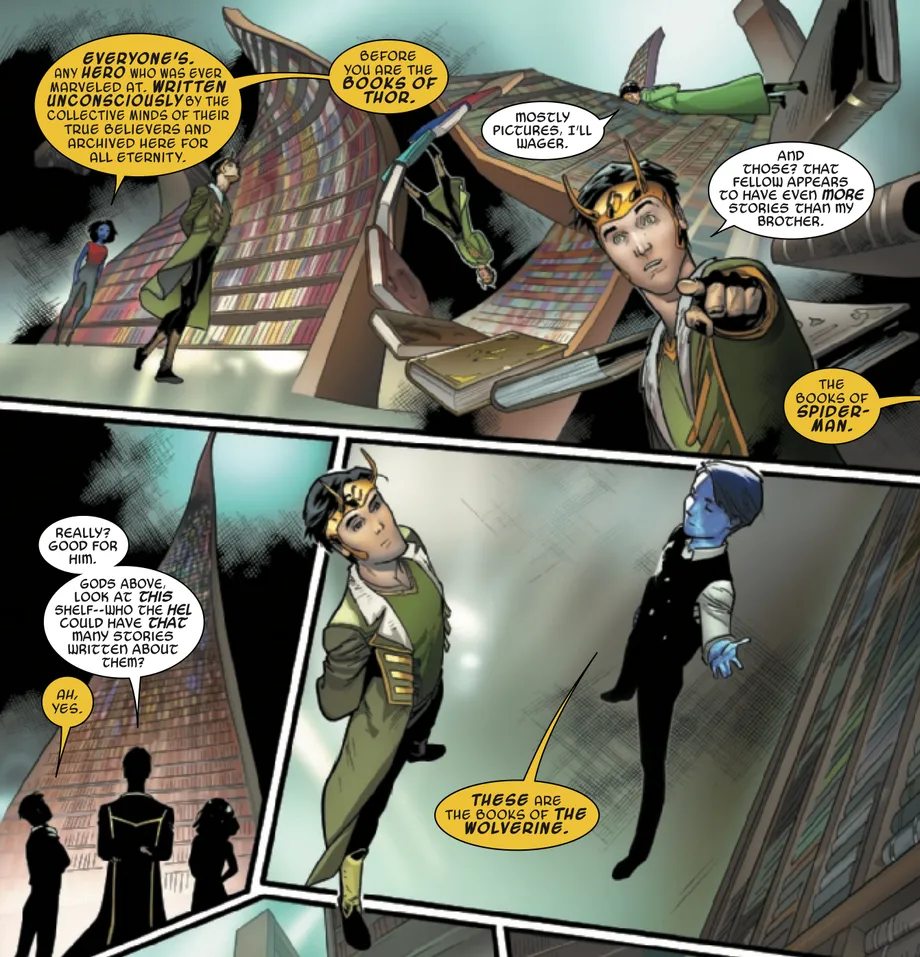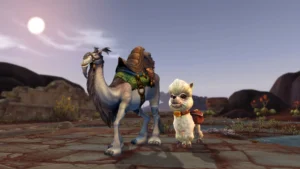
Since the beginning, Loki has represented a liberal reading of Marvel Comics mythology, with little attention ever paid to the inner workings of the Time Variance Authority and no genuine link between the god of mischief and them. Though it wasn’t interested in telling their stories, it made references to some Lokis from earlier comics.
However, in the penultimate episode of Loki season 2, everything could be about to change. Ironically, Loki’s greatest character moment of the past ten years seems to be coming to the Marvel Cinematic Universe—a moment that most likely wouldn’t have happened without the MCU.

There are several ambiguous moments rather than a clear one in “Science/Fiction” that reveal the goals of the Loki writing room. “We’re all writing our own stories now,” Sylvie informs him. Loki is encouraged by O.B./A.D. to turn to fiction rather than science to solve his time-traveling dilemmas. Furthermore, Loki himself stated at the conclusion of the episode that he would be able to “rewrite the story” because of his newfound ability to manage his time slipping.
After Loki finds a spot in the TVA that he loves in season 2, the TVA desperately needs someone to educate it how to manage timelines rather than cut them down—someone to keep an eye on the multiverse’s “story.” This turnabout, comparing the capacity to manipulate time to fiction, is eerily similar to the most significant metamorphosis the shape-shifting Asgardian has undergone in contemporary comics: Loki’s transition from the god of falsehoods to the god of stories. But there is one significant difference.
OLD GODS DO NEW JOBS
Without Tom Hiddleston’s captivating performance, Loki would not have evolved from a cunning villain to a kindhearted trickster. While manipulative in the original comic books, Loki lacked charisma. Loki was not attractive, youthful, robust, or charming in the same ways that Thor was. That was essentially the idea.
That version of Loki passed away in 2010. Even by the norms of always returning gods and perpetually rising comic book characters, he truly, really died. The tale of a new being created to assume Loki’s identity and occupy his position in Asgard as Thor’s brother and Odin’s least-loved son that followed, negotiating his connection with the previous Loki’s past misdeeds, came from the work of comics authors like Matt Fraction, Kieron Gillen, and Al Ewing.
This Loki had a good look. This Loki has a nice, endearing quality. The people who had known this Loki in the past were of the opinion that this new shape was merely another ruse, so this Loki struggled to change their minds. And this Loki rejected the wishes of two previous and one future incarnation of himself to forge his own route in 2015, just before the entire world ended and began again, renaming himself the god of stories rather than falsehoods.
The goal of Loki season 2 seems to be the same, however, presented in a far more science fiction-like manner. Which, in my opinion, is a bit unfortunate.
THE SPIRIT OF THE THUNDER IS TO BE HEARD

Jokes Thor and the other members of his Asgardian ensemble are viewed by Marvel Comics as living mythologies, which informs Loki’s choice of narrative as his portfolio. They are narratives, and their strength stems, at least in part, from their affinity for human brains and storytellers. Thor is the god of thunder, and like in a narrative read aloud, “the spirit of the thunder is to be heard,” as Jason Aaron stated in the climax of his Thor run.
Superhero comics are a contemporary offshoot of heroic epics and oral tradition, giving a lively metatextual touch to a universe that is literally and fictionally constrained by the principles of excellent storytelling. I believe we are missing something with a great deal of rich metaphoric possibilities if we base Loki’s influence over the narrative on mere time travel.
Loki season 2 is really simply playing a hand that has already been dealt there, though. Marvel Studios decided early in the 2010s that the Asgardians in the Marvel Cinematic Universe would not represent the magical elements of myth itself but rather would be portrayed as technologically sophisticated creatures who had influenced myth. Thus, the television series Loki had to come to the same conclusion as the comic book character Loki: perhaps we might refer to him as a god of time-travel narratives.



